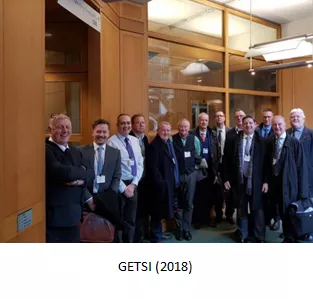OPINION: Dr Simon Reddy on employability and quality in Further Education


My 2014 doctoral study identified that large numbers of 16 to 19-year-old full-time plumbing students and adults failed to progress into jobs or apprenticeships at the end of their Further Education (FE) course, signifying issues with quality of provision and whether an economic demand for these skills existed. This article looks at the progression data from FE into further learning, apprenticeships and employment. It is argued that employability training in FE has failed to prepare both young people and adult students for the real world of work, while possibly leading to unsupervised self-employment in safety-specific occupations such as plumbing, gas or electrics.
T-Levels will replace the current full-time plumbing qualifications in 2020, with the full program to be introduced by 2022. The focus of T-Levels is on employability and they differ from the current offer by requiring an extensive and relevant work placement. Leaders seem very confident that T-Level plumbing students will easily find the mandatory work placements and the curriculum will automatically be relevant to what they do in college. FE leaders also believe there is a demand for these skills in the economy, owing mostly to reports of ‘chronic’ skill-shortages, which have driven the discourse over employability for the past decade or more.
Low rates of progression into employment
The Chair of the Education Select Committee, Minister Robert Halfon, was reported in the Times Educational Supplement (TES, 2018) to have said that employers are “crying out for skills in a whole range of different sectors, from electricity, gas and water to construction, transport and manufacturing”. Gateshead College Principal Judith Doyle supported the Minister, saying it was vital that schools, colleges and universities all play their part to engage employers, in order to develop learning pathways and experiences that provide “skills so that when young people leave places of learning, they can find meaningful paid work that rewards their studies and enhances their future career prospects” (TES, 2018). Doyle said that, overall, 94% of her “2015-16 cohort of students had a positive destination securing a job, apprenticeship or moving onto an FE or HE programme”.
To clarify this data, I contacted the Department for Education (DfE, 2018a), who were most helpful in providing a link to comprehensive destination data. They also provided me with progression data for 16 to 18-year-olds at Gateshead College:
- 61% into education
- 25% into employment
- 13% into apprenticeships
The DfE (2018a) also provided the national comparative progression figures for 16 to 18-year-olds for all UK schools and colleges:
- 66% into education
- 23% into employment
- 7% into apprenticeships
These numbers do not add up. This is reconciled in the DfE (2018b) guidance on the data that states “all apprentices also appear under either employment or education destinations”. The 7% national comparative progression figure for apprenticeships may be included in either the 23% progression into employment or the 66% progression into education (DfE, 2018b:15).
Subtracting the apprenticeship figure of 7% from the 23% of students progressing into employment leaves you with 16%, which according to DfE (2018b) also includes local authority progression data from the National Client Caseload Information System (NCCIS) and pupils who have been identified as being self-employed.
Turning to self-employment
Many tutors in my own study of college training and apprenticeships reported that self-employment was one of the key aims of most of their adult students:

"The vast majority of our adult students come in to run their own business; they want to have the freedom of being self-employed…With our adult learners, it’s almost like they are getting a second chance." (Tutor Mike C1)
(Reddy, 2014:127)
Across the three college sites, there were large numbers of adult students studying plumbing with hopes of progressing into a new career. Many had invested economic and emotional capital, so they had little choice but to become self-employed if given no prospect of paid plumbing employment at the end of the course. This empirical narrative is reflected in the macro data reported by Institute for Public Policy Research (IPPR) (2017a) regarding the steep rise of self-employment within the construction sector between 1997 and 2017 (see Figure to the right). About 42% of workers in the construction industry are self-employed – three times higher than the rest of the economy.
Insufficient skills and experience
Although this rise in self-employment may be regarded as economically positive, Reddy (2014) argued that it was hazardous for full-time college students to graduate and progress into self-employment unsupervised because the college-based training and assessment was incapable of replicating the reality of the workplace. Hence, the full-time student is ill-prepared and may face a reality shock because the skills required in the real context of work are different from those learned in college. The following extract from my 2014 study describes the shortfalls of college-based training and assessment through the comments expressed by plumbing teachers and on-site assessors:
“…many tutors expressed their concern for preparatory courses and qualifications because students did not acquire the necessary work experience to become competent. An on-site assessor told of how he had to terminate the assessment of two technical certificate graduates on an on-site NVQ2 assessment. The students failed to locate the isolation for the mains water supply for the job they were doing and hence could not start the job they intended to do. The assessor described locating the position of the mains stop-tap on the pavement outside as basic knowledge for practising plumbers. However, the full-timers who were being assessed had not experienced this other than in books and simulations in college where the mains water isolation was always easy to locate and isolate.” (cobs C1, 28/10/2009).
(Reddy, 2014: 233)
My (Reddy 2014; 2017; 2018) findings on the quality of Further Education training and assessment support the position of IPPR (2017b), who said FE provision had been shaped by the government rather than employers. IPPR argued that much of the current provision was delivered at low level, with shallow curriculums, low rates of progression and low labour market returns. IPPR were scathing about college provision, stating that “the FE sector is often failing to give learners the skills and experience that they need to progress into a sustainable career in the industry, and it is failing to meet the needs of employers” (IPPR, 2017a: 16). On the issue of quality, IPPR (2017b: 70-71) stressed that “comparatively few teachers in the sector are from an industry background, and many do not have teaching qualifications”.
Tutors in my 2014 study were unanimous in their judgements about college-based training and assessments failing to adequately represent the reality, problems and experiences of plumbers operating in the workplace:
"College exercises in the workshop are not real-life exercises; they are simulated. Everything is nice and level and flat. There are no problems, it’s all there. It’s like I said, when you get into the real world and you get into someone’s house, it’s completely different." (Tutor Darrel College 3, cited in Reddy, 2014: 156.)
Health and safety issues

While many of my findings in relation to the inadequacy of competency assessments support the existing literature on vocational education and training, my research brings about new insights in relation to health and safety. My study reinforces growing concerns from the Gas Industry Safety Group (GISG) and the Institution of Gas Engineers and Managers (IGEM) (2016), who reported an increase in unsafe gas work by recently qualified engineers; from 1% to 5% (Gas Safe Register, in GISG/IGEM, 2016: 1).
They highlighted an over-emphasis on classroom theory and a dependency on online multiple-choice tests, with gas safety exams being sat by novices who “were allowed to keep re-sitting the tests until they passed” (GISG/IGEM, 2016: 20). These findings build on the earlier work of the Unite Union (Unite 2012: 10), which stated that college-based courses can create “under-qualified individuals, who have the misconception that they are then able to undertake safety-critical work”.
More recently, I attended a parliamentary hearing to give evidence as part of the Gas Engineer Training Standards Inquiry (GETSI) (2018). It was conducted by the All Party Parliamentary Carbon Monoxide Group (APPCOG), which commissioned Policy Connect to conduct the research. The inquiry is a response to a significant rise in reports of poor quality training of Gas Safe Registered Engineers.
Different skills are required for employment vs. self-employment
Although it is acknowledged that self-employment is paid employment – it is argued here that the objective of employability training and progression in Further Education is not the same as the objective of training a person to become self-employed and to work unsupervised. The objective of employability involves different skills and behaviours than what is required to run a business as a self-employed person, so the two means to employment should not be conflated. My study showed that adult students gained the most from FE training because they had the maturity and wherewithal to set-up as self-employed plumbers, but younger full-time plumbing students did not have the same quality of opportunity and were much more unlikely to become self-employed following the college course.
High numbers of self-employed adult students bolster the published progression rates from FE to employment, but if it were excluded from progression statistics, the average number of students going into employment (other than self-employment) is likely to change from the current figure of 16% (excluding apprentices) to under 10%. The national average progression figures given by DfE for schools and colleges work to conceal institutions failing to progress students into employment, while their marketing departments promote skills shortages to suggest high wages and ease of finding jobs in sectors like construction – when nothing could be further from the truth.
It is difficult to see how colleges offering T-Level vocational qualifications will find work experience placements for all of the plumbing students on courses. Since a national average of 7% of full-timers progress onto apprenticeships from schools and colleges, there is a solid chance that the demand for plumbers and construction workers is much lower than the government and training centres are telling us. This places a big question mark over the current approaches to employability training and the sustainability of the UK’s technical offer in Further Education.

Dr Simon Reddy is a Master Plumber and Education Professional. He has studied, taught and researched in Further Education for over three decades. Simon Reddy is CEO of leadinthewater.com, a public health awareness platform, and tweets from @reddyplumbing and @leadinwater.
You may also want to read:
Engaging Employers in Apprenticeships – OECD (Resource)
The New Adult Learner: Learning and Not Knowing – David Shindler (Blog)
Apprenticeship policy in England takes an unexpected turn - Markus Palmén (Blog)
References
Department for Education (2018a) Personal correspondence by email with Simon Reddy, 26th March at time 1645, DfE reference number 2018-0012018.
Department for Education (2018b) Key stage 4 and 16 to 18 destination measures (revised) Guidance and technical note for 2017 performance tables, [Online], https://www.gov.uk/government/uploads/system/uploads/attachment_data/file/675424/Destination_guidance_for_key_stage_4_and_16_to_18.pdf [27 Feb 2018].
Gas Engineer Training Standards Inquiry (2018) All Party Carbon Monoxide Group, [Online], http://www.policyconnect.org.uk/appcog/news/getsi-gets-going [April 17 2018).
Gas Industry Safety Group and Institution of Gas Engineers and Managers (2016) ‘Gas Engineer Training Report’, [Online], Available: http://www.gisg.org.uk/Publications/GISG_IGEM_Gas%20Engineer%20Training%20Research%20Report.pdf [20 Feb 2017].
Institute for Public Policy Research (2017a) Another lost decade? Building a skills system for the economy of the 2030s, http://www.ippr.org/publications/skills-2030-another-lost-decade [14 March 2018].
Institute for Public Policy Research (2017b) Building Britain's Future, http://www.ippr.org/publications/building-britains-future [17 April 2018].
Reddy, S. (2014) ‘A study of tutors’ and students’ perceptions and experiences of full-time college courses and apprenticeships in plumbing’, University of Exeter PhD thesis, [Online], https://ore.exeter.ac.uk/repository/handle/10871/15728 [10 Nov 2016].
Reddy, S. (2017) ‘World Plumbing Council Scholarship Report: A comparative education study of plumbing and training: Hong Kong and England’, World Plumbing Council [Online], http://worldplumbing.org/assets/uploads/2016/11/2015-WPC-education-and-training-scholarship-report-Simon-Reddy.pdf [30 Jan 2018].
Reddy, S. (2018) ‘The problem with Further Education and Apprenticeship qualifications’, FE News [Online], Available: https://www.fenews.co.uk/featured-article/16032-the-problem-with-further-education-and-apprenticeship-qualifications [23 March 2018].
Times Educational Supplement (2018) ‘Chair of education committee offers new insights on FE's issues’, by Judith Doyle 11th Feb, [Online], Available: https://www.tes.com/news/further-education/breaking-views/chair-education-committee-offers-new-insights-fes-issues [14 March 2018].
Unite (2012) Unite the Union response to the Department for Business, Innovation & Skills and Department for Education - Richard Review of Apprenticeships, Executive summary, [Online], Available: http://centrallobby.politicshome.com/fileadmin/epolitix/stakeholders/stakeholder s/Unite_the_Union_response_to_the_Richard_Review_of_Apprenticeships_201 2__4_.pdf [2 Nov 2012].




